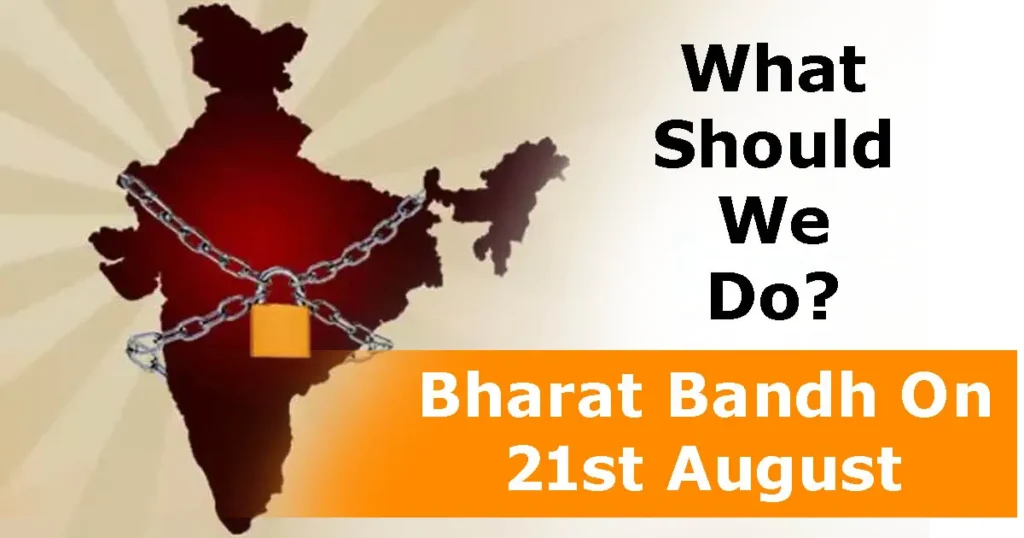On August 21, 2024, India witnessed a Bharat Bandh, a nationwide shutdown organized by the Reservation Bachao Sangharsh Samiti. The bandh was called in response to a controversial ruling by the Supreme Court, which has ignited widespread discontent across the nation, particularly among Scheduled Castes (SC) and Scheduled Tribes (ST) communities. The ruling, which allows the creation of sub-categories within these communities for reservation purposes, has been met with strong opposition, leading to this significant protest.

The Supreme Court Ruling and Its Implications
Table of Contents
The catalyst for the Bharat Bandh was a Supreme Court decision made on August 1, 2024. The ruling grants state governments the authority to create sub-categories within the SC/ST reservation system. This “quota within a quota” framework aims to ensure that the most disadvantaged groups within these communities receive priority in accessing reservation benefits.
While the court’s decision is rooted in the principle of equity—ensuring that benefits reach those most in need—it has also sparked significant controversy. Critics argue that this move could dilute the benefits intended for the broader SC/ST communities. The ruling also extends the “creamy layer” principle, previously applied to Other Backward Classes (OBCs), to SCs, further complicating the reservation landscape.
The decision overturns a 2004 Supreme Court judgment, which had previously barred states from creating such sub-categories. This shift in legal stance has caused an uproar among various social and political groups, particularly those representing SC/ST interests.
Nationwide Response and Support
The Bharat Bandh garnered extensive support from multiple organizations and political entities across the country. SC/ST groups in Rajasthan were notably vocal, with widespread participation anticipated from these communities. The Bahujan Samaj Party (BSP), a major political player advocating for Dalit rights, also threw its support behind the bandh, urging its followers to actively participate in the protest.
The bandh was not just a regional affair but resonated across the nation, reflecting deep-seated concerns over the potential long-term implications of the Supreme Court’s ruling. Social media played a crucial role in mobilizing support, with the hashtag #BharatBandh trending widely as activists and supporters voiced their dissent.
Impact and Government Response
The Bharat Bandh had a significant impact on daily life across various regions. Public transportation was disrupted in several states, with protests and road blockages reported in major cities. Educational institutions, businesses, and markets in some areas were closed in solidarity with the protest.
In anticipation of the bandh, the government deployed extensive security measures to prevent any untoward incidents. High-level meetings were conducted by senior police officials to coordinate the security response across states. Western Uttar Pradesh, identified as a particularly sensitive area, saw heightened police presence, with additional forces deployed to maintain law and order.
Despite these measures, reports of sporadic violence and clashes between protesters and law enforcement were reported in some regions, highlighting the tension surrounding the issue.
Conclusion
The Bharat Bandh on August 21, 2024, was a powerful demonstration of the widespread discontent triggered by the Supreme Court’s ruling on SC/ST reservations. While the court’s decision aims to address inequalities within these communities, it has also sparked fears of a dilution of the reservation system as a whole. The bandh underscored the deep divisions and complex nature of reservation politics in India, raising important questions about the future of social justice and equity in the country. As the debate continues, it is clear that the issues at stake resonate deeply with millions of Indians, making this a pivotal moment in the ongoing struggle for social equality.